It is necessary to evaluate the level of task completion of the heads of ministries, branches and localities.
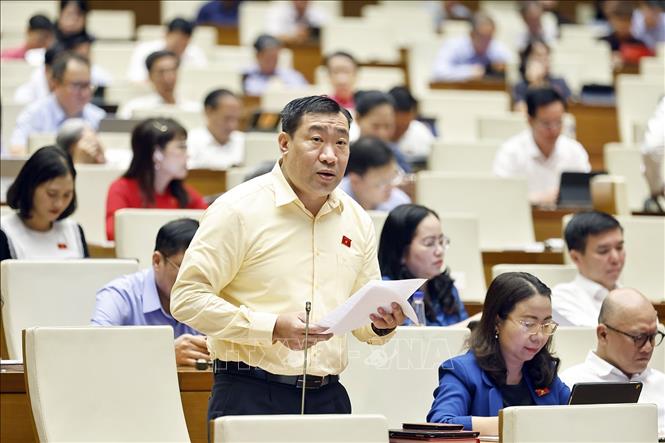
National Assembly delegate of Tra Vinh province Thach Phuoc Binh speaks. Photo: Doan Tan/VNA
According to delegate Thach Phuoc Binh (Tra Vinh), the name of the draft is Resolution on the mechanism for handling difficulties and obstacles because the provisions of the law are descriptive in general, lack normative nature and do not clearly define the specific nature of the resolution. The phrase "handling difficulties and obstacles" is a very procedural expression, not reflecting the nature of a temporary legal mechanism, designed to flexibly respond to obstacles in the process of applying current laws. Failure to clearly state the temporary nature and not defining the boundary between this resolution and conventional legislative tools can easily lead to misunderstandings, even prolonged application, contrary to the spirit of standard legal management.
From the above analysis, the delegates proposed to adjust the name of the draft resolution to: "Resolution on the temporary mechanism for handling difficulties in legal regulations". This name ensures all essential elements: mechanism - temporary - handling - difficulties - law. This is the option that best demonstrates the transitional and flexible nature of the resolution, consistent with both the content and the time limit for applying the document.
The draft Resolution has clearly assigned responsibilities to ministries, branches and localities in reviewing and proposing solutions to difficulties and obstacles caused by legal regulations. However, the draft does not have specific provisions on legal or administrative responsibilities if these agencies do not implement, implement late or only implement in a formal manner. This can easily lead to a situation of "hot above - cold below", affecting the effectiveness of the resolution's implementation. Therefore, it is necessary to supplement regulations on sanctions and assessment of the level of task completion of heads of ministries, branches and localities in conjunction with the performance of the obligation to review, propose amendments and supplements to legal documents. Implementation results can be included in the criteria for classifying civil servants, public service, emulation and rewards.
Delegate Thach Phuoc Binh said that in practice, many difficulties arise from different understandings between localities or competent authorities, leading to inconsistent application, causing difficulties for businesses and people. Therefore, it is necessary to add a provision affirming that, in addition to handling conflicts in regulations, problems in enforcement, interpretation and application of laws also need to be received, evaluated and guided for handling. At the same time, the Ministry of Justice should coordinate with specialized agencies to synthesize these cases to issue unified application guidelines, ensuring consistency and fairness in law enforcement.
In addition, the draft does not stipulate the public disclosure of information on the status of handling legal problems, leading to people and businesses not knowing which documents are under consideration, not having the opportunity to comment and respond, and not being able to monitor the progress of reform. It is necessary to add regulations requiring the Ministry of Justice or the Government Office to periodically publish a list of documents with problems, the expected handling plan, the progress of implementation, and allow agencies, organizations, and individuals to monitor and provide comments. The update should be done on the National Legal Information Portal, which is highly public and transparent.
Another positive point, the delegate analyzed, is the regulation to consider exempting officials from liability if they comply with the correct procedures and have no profit motive, thereby contributing to "unleashing" the fear of making mistakes when performing public duties. However, the exemption mechanism, although humane, does not have specific verification criteria and can be exploited to cover up mistakes or avoid responsibility. The role of the People's Council at the provincial level is still quite vague, mainly in the role of supervision, and does not have the right to directly propose measures to handle documents that are stuck in the locality. In addition, there is a lack of regulations on periodic inspection and evaluation of the implementation results of the Resolution.
“I propose that the conditions for exemption from liability need to be clarified, specifically, there must be a conclusion from an inspection, examination or audit agency that the official did not commit any violations. At the same time, it is necessary to expand the role of the provincial People's Council, allowing it to propose the handling or abolition of legal documents that are no longer appropriate in the locality,” the delegate said.
Ensuring quality and sustainability
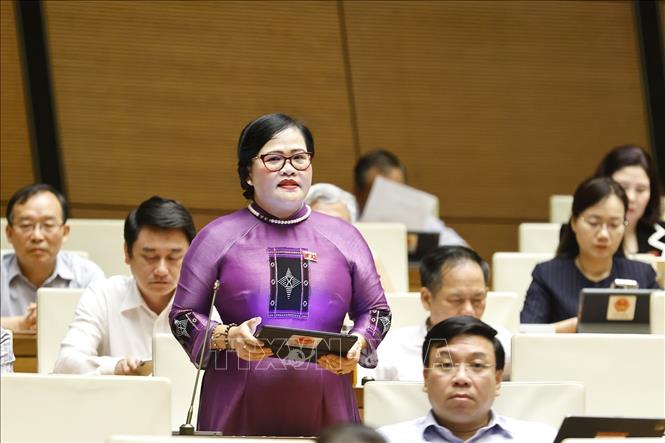
National Assembly delegate of Hue City Nguyen Thi Suu speaks. Photo: Doan Tan/VNA
According to delegate Nguyen Thi Suu (Hue City), adding the provision "ensuring the constitutionality and consistency of the legal system" to the principle in Clause 1, Article 3 of the draft Resolution is completely appropriate, necessary and meaningful in ensuring quality and sustainability in building and perfecting the law.
According to the delegate, the Drafting Agency aimed to affirm one of the pillars of the modern rule of law state that "human rights and civil rights are supreme, the law must protect and promote these rights proactively and substantially". At the same time, it demonstrates the elements of fairness, transparency, and minimizing unreasonable barriers for people and businesses - key conditions to create a favorable legal environment and promote sustainable development.
However, the delegate noted that it is necessary to clarify and express closely the factors of ensuring and enhancing the legitimate rights and interests of all organizations and individuals, especially disadvantaged groups. The 2013 Constitution affirms basic rights, especially in Articles 14 (human rights), 32 (property rights), 33 (freedom of business), 34 (social security). According to the delegate, the law must go ahead and pave the way for these rights to be implemented, not only protecting but also creating practical conditions for subjects (including social organizations, disadvantaged groups such as the poor, ethnic minorities, children, women, people with disabilities, etc.) to rise up.
At the same time, transparency and simplification of administrative procedures, ensuring that people and businesses can access and clearly understand their rights and obligations; preventing the risk of "abuse of power" and "harassment" due to complicated and ambiguous procedures; increasing the application of digital technology, publicizing the processing procedures on the national public service portal; developing a favorable and fair legal environment aiming at a creative legal foundation that not only removes obstacles but also fosters innovation, ensures healthy competition, and an open and fair investment environment for all entities.
“Legal policies must support and empower instead of controlling and prohibiting unnecessarily,” the delegate emphasized.
Hue City delegates said that applying this principle in legislation helps limit abuse of power, prevent corruption, promote institutional reform, and maximally protect the rights and legitimate interests of all subjects; at the same time, it contributes to improving national competitiveness...
Therefore, the delegate proposed to amend Clause 5, Article 3 as follows: Ensuring and enhancing the legitimate rights and interests of all organizations and individuals, especially people, businesses, and vulnerable groups; not increasing the burden or creating unreasonable responsibilities; being transparent and simplifying administrative procedures; developing a favorable and fair legal environment.
Do Binh (Vietnam News Agency)
Source: https://baotintuc.vn/thoi-su/quoc-hoi-thao-luan-ve-co-che-xu-ly-kho-khan-vuong-mac-do-quy-dinh-cua-phap-luat-20250623101957838.htm



![[Photo] Party Congress of the Central Internal Affairs Commission for the 2025-2030 term](https://vphoto.vietnam.vn/thumb/1200x675/vietnam/resource/IMAGE/2025/6/23/5bf03821e6dd461d9ba2fd0c9a08037b)

![[Photo] Prime Minister Pham Minh Chinh holds meeting to launch exhibition of national achievements to celebrate 80th National Day](https://vphoto.vietnam.vn/thumb/1200x675/vietnam/resource/IMAGE/2025/6/23/0c0c37481bc64a9ab31b887dcff81e40)


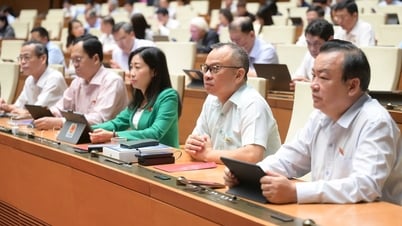

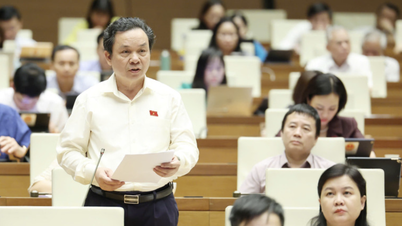

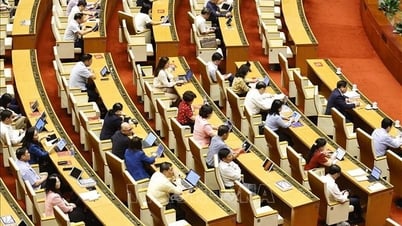


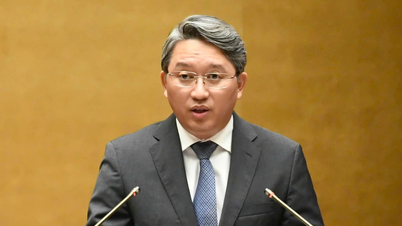

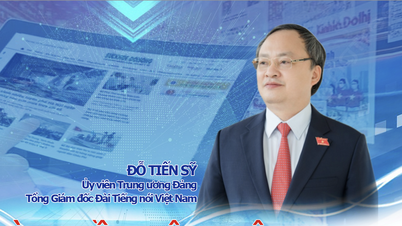

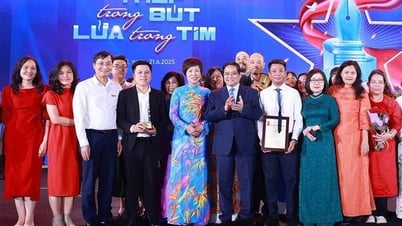
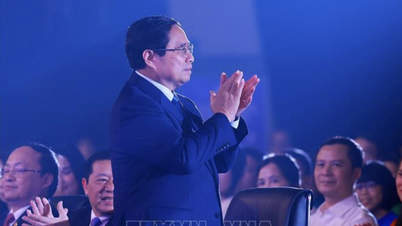







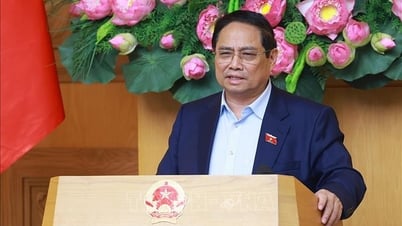


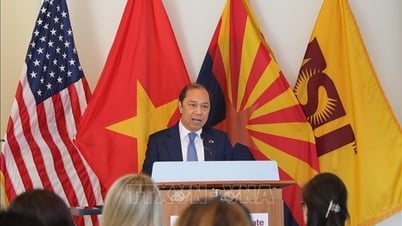
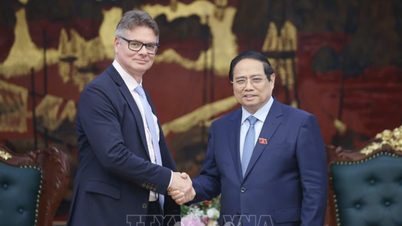

![[Photo] Conference to disseminate the implementation of the Plan to promote digital transformation to meet the requirements of restructuring the political system's apparatus](https://vphoto.vietnam.vn/thumb/1200x675/vietnam/resource/IMAGE/2025/6/23/4744403cccd144b79086799e2ceb686e)













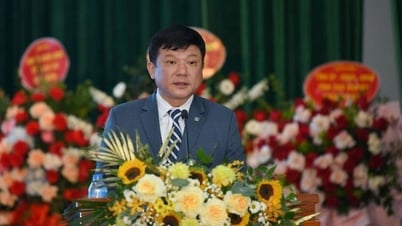



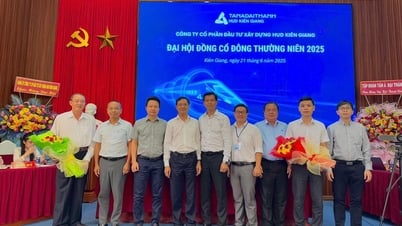


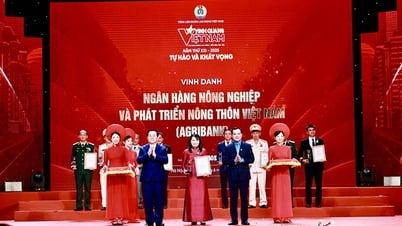

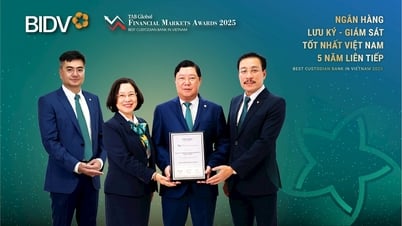

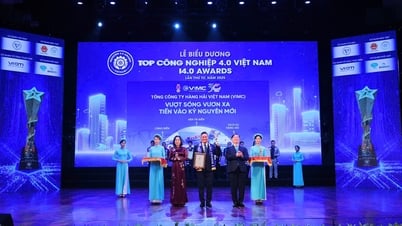

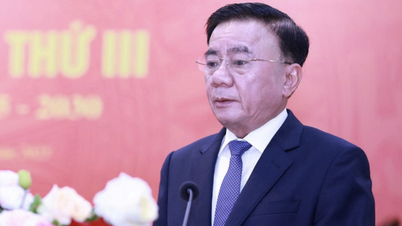

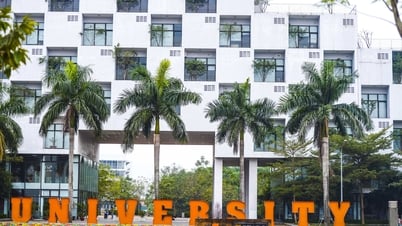

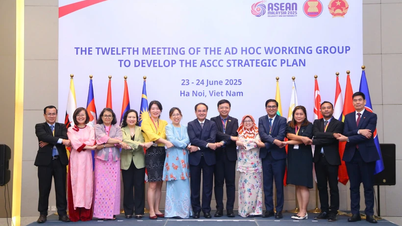
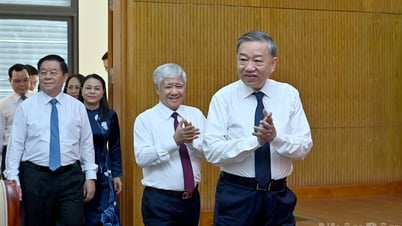
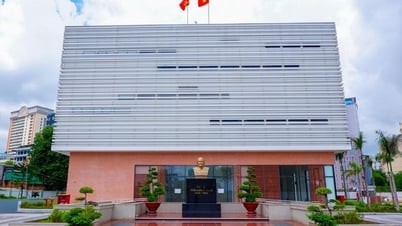



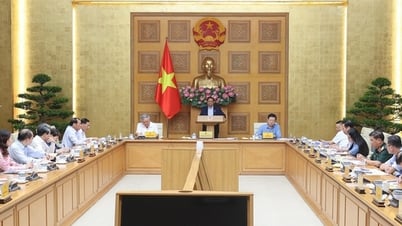








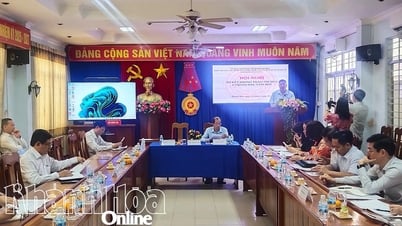



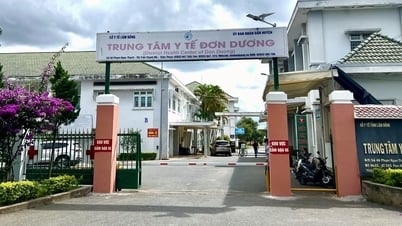













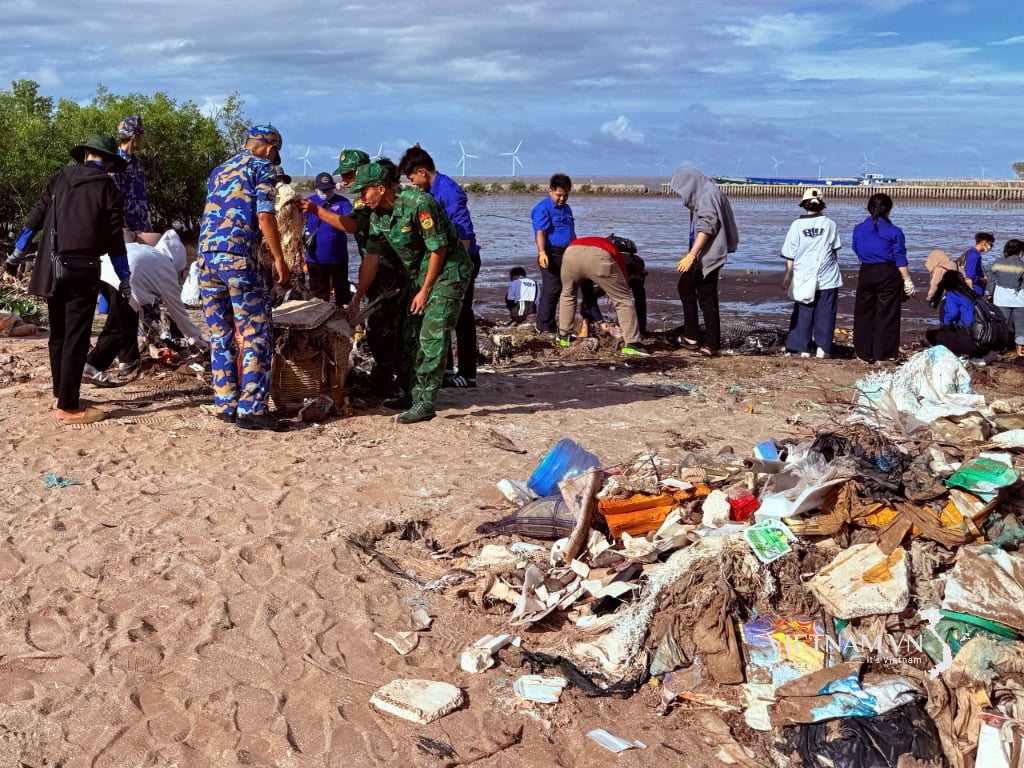


Comment (0)